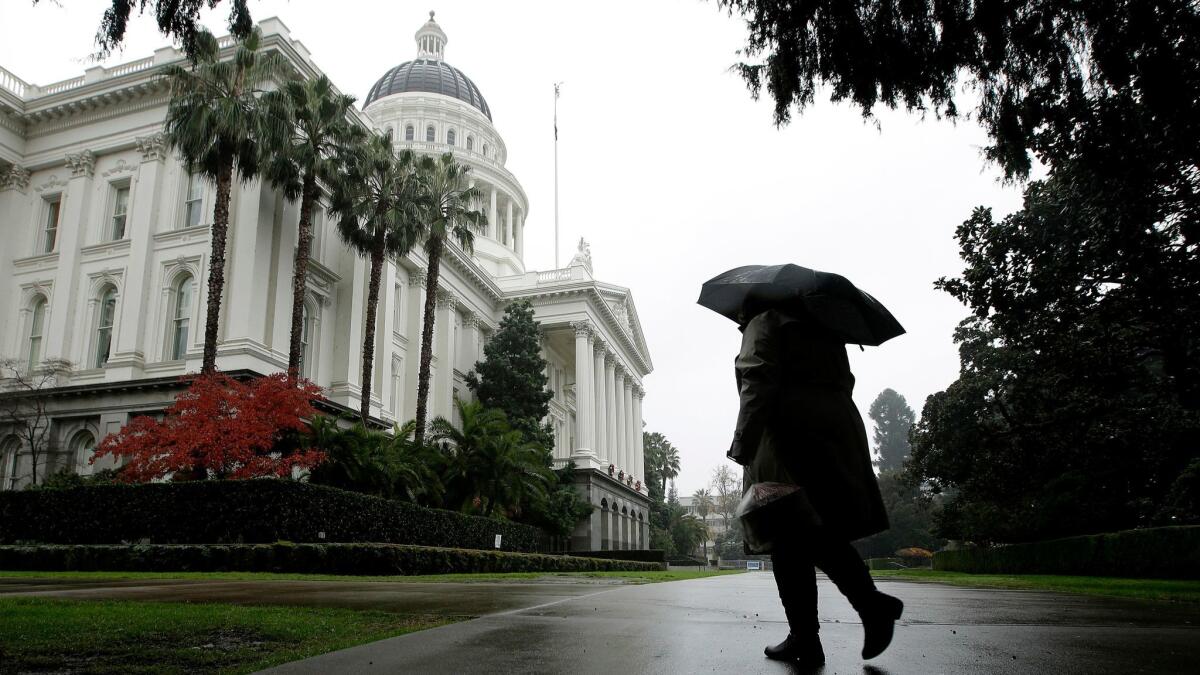Editorial: A petty play on transparency in Sacramento

- Share via
When Californians endorsed the Legislative Transparency Act on Nov. 8, they probably had little understanding of the technical aspects of the measure. It was the general idea that was attractive: that lawmaking in Sacramento ought to be as transparent and accessible to the public as is technologically possible.
So it’s disappointing that only a month after the initiative passed, legislators are already attempting an end run around the provision in the new law that says bills must be in print in their final form for 72 hours before they can be put to a vote. On Monday, the first day of the new two-year session, legislators adopted two immigration-related resolutions that had been printed that very day.
So didn’t that violate the new law? Absolutely not, says the legislative leadership, because resolutions are not bills, but statements of opinion. Bills are proposed laws.
That may be a legally defensible position, but it is a pretty clear violation of the spirit of the new law. As is another exemption endorsed by Assembly members when they adopted their new rules Monday: constitutional amendments. Under the new rules, when legislators vote to put a constitutional amendment on the ballot, they would not need to abide by the 72-hour provision.
But, wait, there’s more. The most egregious interpretation says that the “final form” of a bill — which is when the 72-hour provision is supposed to kick in — is not when a bill leaves the house of origin, but when the second house votes on it. So according to the Assembly interpretation, bills would be exempted from the 72-hour rule in the first house altogether.
(The Senate, to its credit, has published no such rules regarding Prop. 54 exceptions.)
That interpretation is highly questionable. The coalition of good government groups that backed Proposition 54, including California Common Cause, California Forward and the League of Women Voters, thinks so too. In a recent joint letter to legislative leaders, they said the 72-hour requirement applies to any house that is passing a bill. “This is the only logical and internally consistent interpretation based on the language, ballot materials and purpose of Section 8 of Article IV of the Constitution,” they wrote.
Some state lawmakers didn’t like Proposition 54 from the start, fearing the 72-hour rule would limit their ability to get controversial bills passed because it would give lobbyists three days to work over on-the-fence legislators. But why shouldn’t lobbyists and other stakeholders have a right to see legislation and express their opinions to legislators before a vote?
Much of the Democratic-controlled legislature’s resistance to this measure focused on Charles Munger Jr., the billionaire conservative political donor who backed it. But who cares what the politics were of the man who was behind it? It was an effort to improve transparency in lawmaking that earned the backing of good government advocates and, ultimately, California’s voters.
When the legislature returns to Sacramento next month, we hope they will soften their hardheaded stance on Proposition 54 and embrace its spirit of transparency.
Follow the Opinion section on Twitter @latimesopinion and Facebook
More to Read
A cure for the common opinion
Get thought-provoking perspectives with our weekly newsletter.
You may occasionally receive promotional content from the Los Angeles Times.









